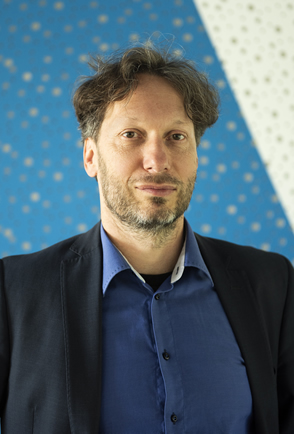As a Hungarian enterprise, Gravity Research & Development Zrt. has been present on the global market for recommendation engines since 2010, helping service providers in a wide variety of industries both in Hungary and abroad. Under the brand names Yusp and Yuspify, they offer personalisation solutions based on cloud analytics to better understand and predict customer needs in providing online services. Funding from the National Research, Development and Innovation Fund has helped the company to further develop its product range with new technologies to make it more attractive and competitive on this rapidly changing market.

Domonkos Tikk
Various forms of recommendation engines are now almost omnipresent on the web. Online shops, music and movie content providers, social media platforms all use some kind of algorithm to offer visitors services/products that they are most likely to be interested in, personalised based on specific information. This allows attention to be drawn to an offer that is relevant to a user, but which they would not be able to find by simply searching for it on their own, due to lack of time (or because it is out of their reach or they may not have thought of it). This benefits both parties, as it can improve customer experience and satisfaction, as well as boosting traffic.
In the mid-2000s, the future founders of Gravity were first hooked on this field, still in its infancy in Hungary back then, at the Budapest University of Technology and Economics. In 2006, they entered Netflix’s million-dollar grand prize competition in the US, where they had to beat the multinational’s own recommendation engine. The Hungarian team achieved first place in a tie. From here, it took only one step to consider starting a business, and eventually to build a global reputation.
Ever since, the solution developed by Gravity has used even more resources and more sophisticated algorithms to map individual preferences: not only does it analyse the correlation between millions of data points, from user habits to product features to browsing context, but it can also tune to the visitor’s current goals clicks based on their clicks and even keep learning from the results to continuously improve its own performance. One of the company’s innovations is the adaptation of deep learning technology to recommender engines, operating in real time from the current session, as not all visitors have historical data available.
The current project has taken this to a new level: using the company's deep learning algorithm and artificial intelligence components, the GRVDL engine has been developed, which is now able to directly infer long-term goals. In addition, based on customer feedback and requirements, a new interface prototype was created, a personalised search engine and pop-up module were added, and plug-in modules for the most popular e-commerce platforms were developed. These innovations result in an easier-to-use system, even better performance, and higher clickthrough and conversion rates. Ongoing research and an established test lab support both product development and operation to make the product accessible to even the smallest SMEs. This will enable Gravity to continue to respond quickly to demand and address an ever-larger customer base on this dynamically expanding market.
Thanks in part to the innovations developed in this call for proposals, Gravity was acquired by US-listed Taboola in 2022. Following this acquisition, Gravity’s products have been integrated into Taboola’s online ad placement optimization platform, reaching an order of magnitude more users worldwide with innovative technologies previously launched in Yusp and Yuspify.
Project code: 2020-1.1.2-PIACI-KFI-2021-00289
Registered office: 1113 Budapest, Villányi út 40/B






